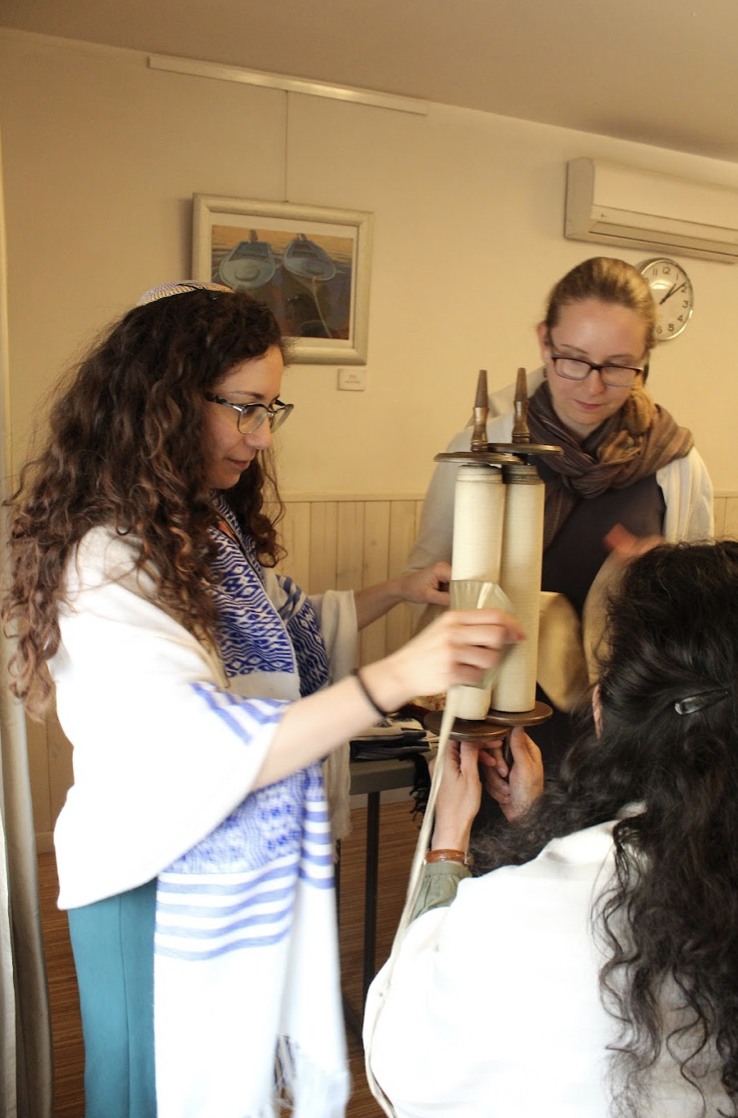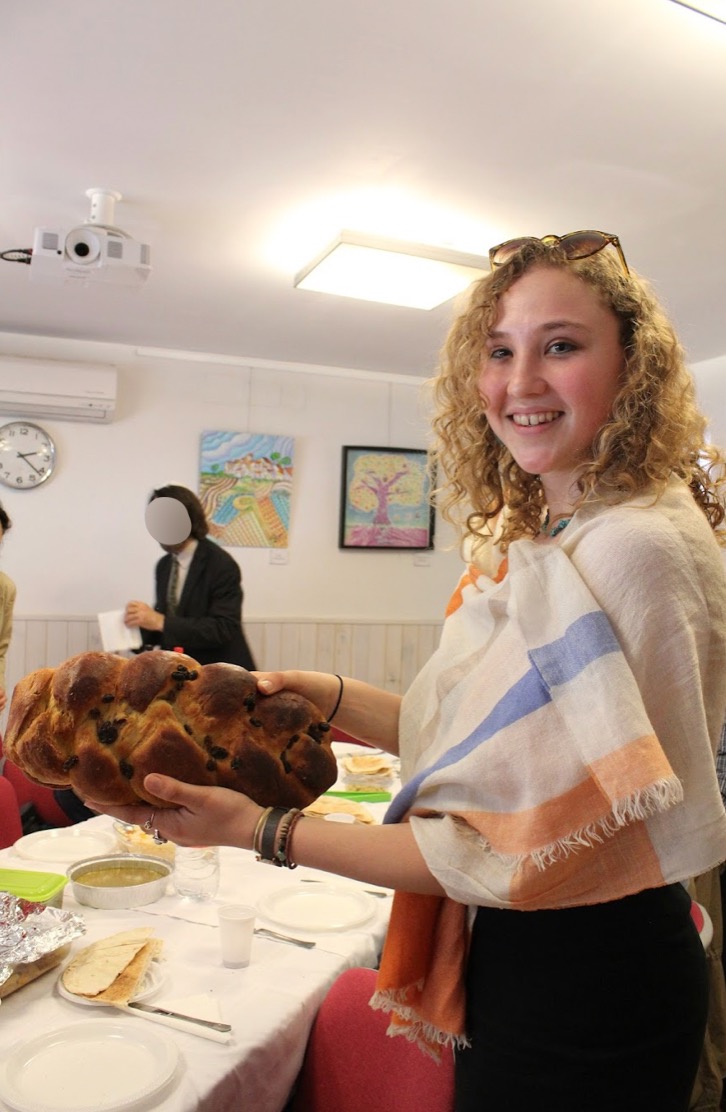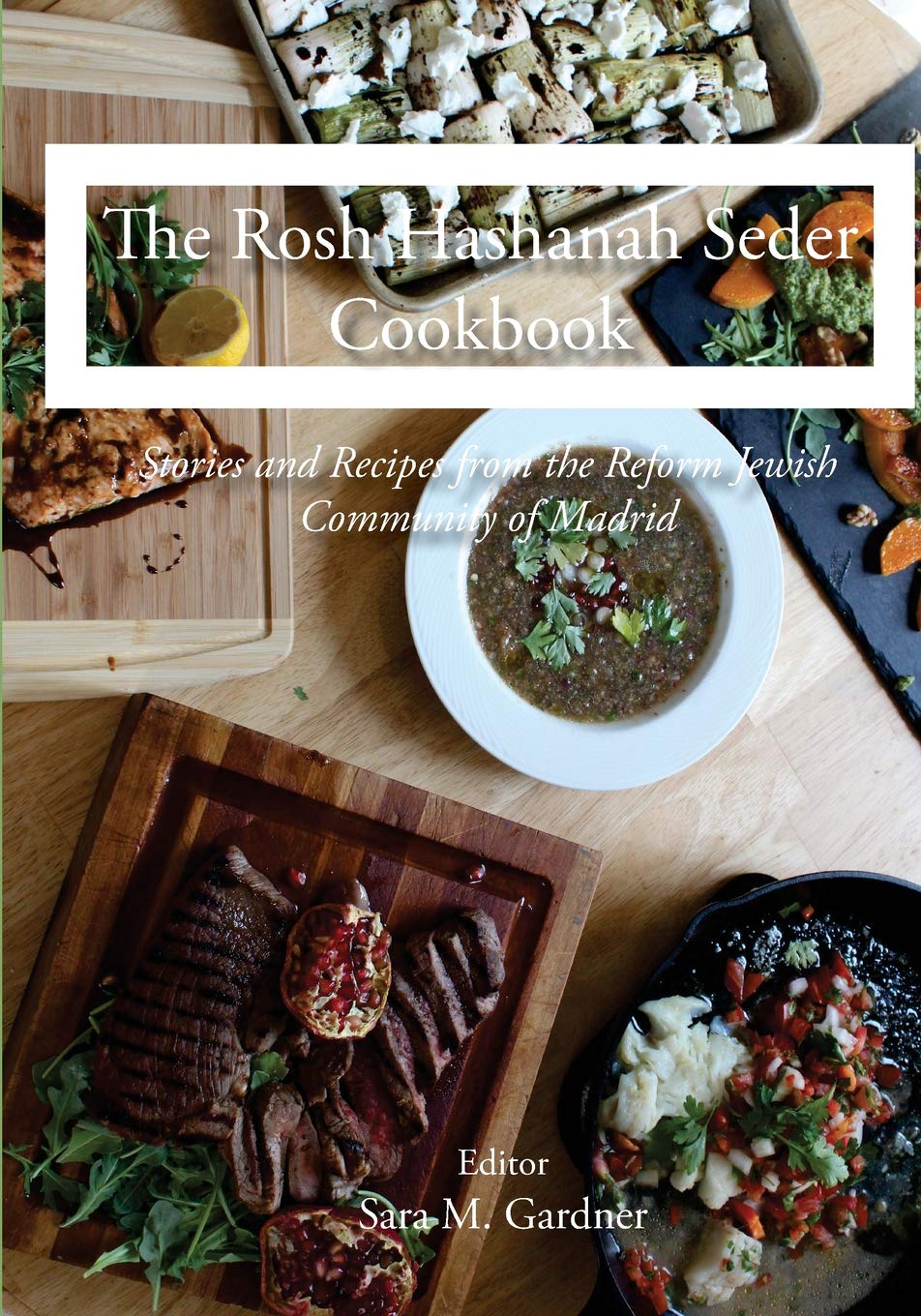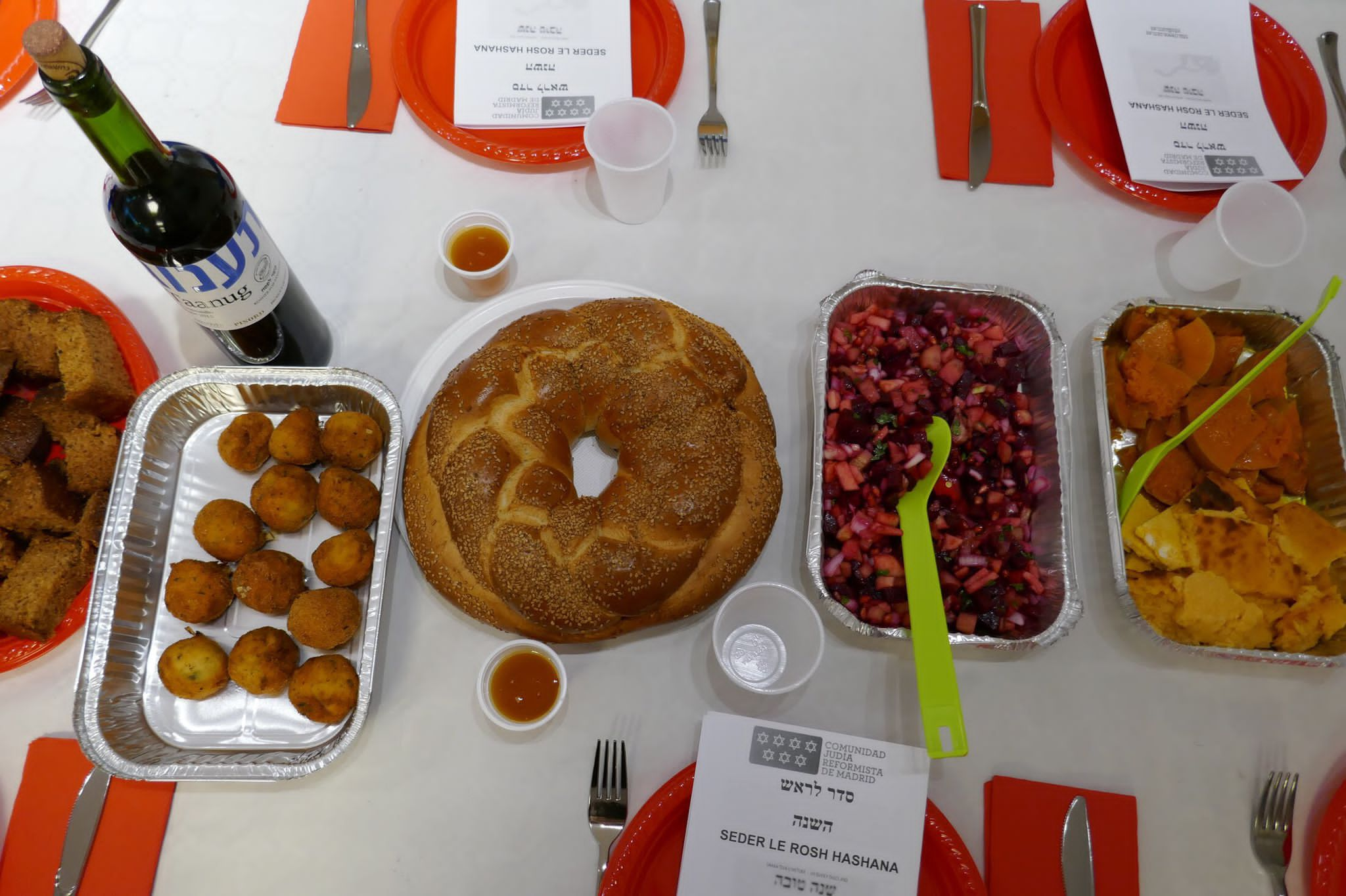Every Friday night in a small cultural center in Madrid, Spain, the aroma of freshly baked challah and sweet mosto fill the building, while sounds of singing and laughter welcome you upstairs. This is where the Comunidad Judia Reformista de Madrid, the Reform Jewish Congregation of Madrid, gathers to celebrate Shabbat with a Friday night service and potluck dinner.
Composed of people of different nationalities, this close-knit female-led community prides itself on being an inclusive place for Jews of all kinds wanting to find their people in a predominantly Catholic country. Yael Cobano is the president of the congregation; along with three other women — Ruth Timón, Keren Herrero and Leidy Andrade — she founded the Comunidad in 2015 in order to build a progressive Jewish congregation where diversity, inclusivity and respect would be the main pillars. “Our community celebrates all that we are — human beings no matter the background,” Yael told me. “Whether you are Sephardic, Ashkenazi, Mizrahi, a Jew of Color, an adult, a child, a Jew by choice or by birth, interfaith, and no matter your sexual identity or gender, we just want to connect meaningfully to one another as an egalitarian tribe.”

Because of their welcoming nature, the community attracts a myriad of international people and students from abroad. Sara Gardner, a graduate of Tufts University, was one of them. In 2016 Sara came to Madrid on a Fulbright to study pre-1492 Sephardic culinary heritage and cultural identity. As part of her research, she wanted to look at how food functioned in modern Jewish communities. Joining Yael’s congregation allowed her to do that — but it also proved to be a life-changing experience.
“I fell in love with the vibe of the community and I started going every Friday because everyone was so warm and friendly,” Sara told me. “It became a big part of my personal experience of Judaism — being in a group where everyone knows your name and everyone wants to talk and spend time together like a family. This was my ideal Jewish community.” To give back to this group of people that was making her time in Madrid so special, Sara decided to share her culinary knowledge with the congregation. “One day I had this idea to teach a cooking class exploring Jewish identity through all these different diasporic origins,” Sara said. “We explored Jewish cuisine from Ethiopia, India, the Iberian peninsula and more, and I like to frame it as every community gives us a different insight into the Jewish experience.”

After completing her Fulbright and moving back to the U.S., Sara hasn’t lost her connection with the Comunidad. “Yael and I are still super close,” Sara said. “One day we were talking about Rosh Hashanah and how [Yael] could incorporate the Sephardic tradition of using the simanim, or symbols, in a Rosh Hashanah seder in order to invite intentions for the year to come. That’s when I had an idea to make a menu.”
Because of Sara’s idea, that year the congregation held a Rosh Hashanah seder for which each member brought a dish incorporating apples, honey, beets, leeks, dates, beans, squash, pomegranates and fish — the symbolic foods of Rosh Hashanah. The recipes they served encompassed diverse traditions, cultural symbolism and family histories, celebrating each person’s unique Jewishness. Looking back at the cooking classes Sara had taught and seeing how their culinary journey around the world provided members of the community with insight into Jewish experiences elsewhere, Yael and Sara decided to gather the recipes and publish a cookbook.
For a little over a year, Yael, Sara and other community members worked on this cookbook. Although its theme was the Rosh Hashanah seder, a Sephardic tradition, the recipes were not only Sephardic. Encompassing varying backgrounds of community members, they highlighted the Comunidad’s diversity. “There is a deep sense of interconnectedness among all Jewish communities and I believe in that unifying thread of Jewish experience, despite very real and very valuable differences,” Sara told me. “The cookbook interacts with this idea in a way that feels meaningful to me because, as I think about Jewish communities all around the world and the questions of identity that frequently come up, this question of honoring differences while also holding this notion of a shared Jewishness is a very important thing for a community as a whole.”

The recipes in the cookbook — titled “The Rosh Hashanah Seder Cookbook: Stories & Recipes From the Reform Jewish Community of Madrid” – range from Russian beet soup to Turkish salads to lesser-known Ceutan dishes. One of Sara’s favorite recipes is gefilte fish served with tomato marmalade instead of the traditional horseradish, which is hard to come by in Spain. “This is how Jews have existed throughout millenia, moving to different places and adapting different recipes — that’s how our culinary repertoire works,” she said. The book is organized into chapters, each one focusing on one symbolic ingredient and containing several recipes along with stories on how that recipe came to be and why it’s meaningful to the person who shared it.
After the book came out in 2018, Sara cooked all the recipes for her Ashkenazi family back in the U.S. for her own Rosh Hashanah seder. Ever since then it has become a yearly ritual in her family to combine this Sephardic tradition with their own Ashkenazi customs. “The cookbook was a labor of love and a sign of how much I care about the Comunidad,” Sara said. “I still see it as my community, even if I’m so far away.” The book has also contributed to putting this small Spanish community on the global Jewish map. From its sales on Amazon, the congregation has been able to earn income that goes towards new projects and the growth of the community.

The Comunidad is now preparing for their first in-person Rosh Hashanah seder since the COVID-19 pandemic. The new members who joined in the last year will not only finally get to have an in-person experience with their community, but will also have a chance to participate in a seder to which they’ll bring their own recipes or use those from the Comunidad’s book. For the first time in two years, the building will once again fill up with delicious and distinct smells as members get together to welcome the New Year and celebrate diversity in this ever-growing community.



